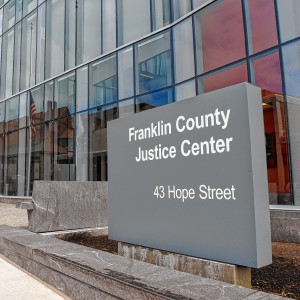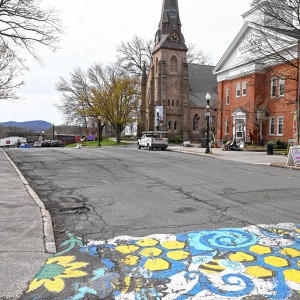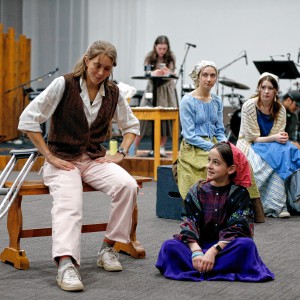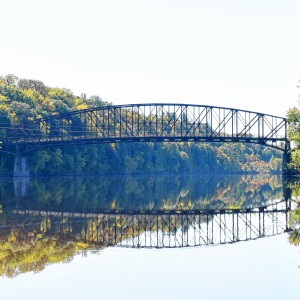$88K grant to support new well for Monroe Water District
| Published: 01-23-2023 3:19 PM |
MONROE — Thanks to an $88,000 state grant, the Monroe Water District will be able to drill a new well, allowing it to better meet government regulations for drinking water than is the case with its existing reservoir system.
“Fresh drinking and usable water are important to a community, no matter how small,” Terry Green, accounting officer with the Monroe Water District, wrote in an email. “Funding these types of projects is never easy, especially for small rural communities like Monroe Bridge.”
This installment marks the second time the district received a grant for a new well, having first received about $50,000 through the same program in June 2021.
This funding was awarded through the state Department of Environmental Protection’s Small and Disadvantaged Community Grant Program. Grants totaling $436,000 were given to five small public water systems this year.
Dan Harris, the primary water operator for the Monroe Water District, explained that the engineering work for the project cost the district about $80,000, with about $50,000 expected for construction.
Engineers have already done some preliminary work, including wetlands delineation and mapping of the site. Construction is set to commence in the spring. The district hopes to have the well operational by next winter. Harris stressed that the well will need to go through extensive quality tests before it is ready to be used by the town.
The Monroe Water District serves about 35 homes in the area known as Monroe Bridge, or the town center. The district currently uses a reservoir system, but has had difficulties with dissolved carbon in its reservoir. The surface water collects leaves and sticks, which creates disinfection by-products (DBPs). High levels of DBPs in drinking water are against government regulations. According to the Centers for Disease Control and Prevention, humans exposed to unusually large amounts of some DBPs could experience liver damage and decreased nervous system activity. The water district received an administrative order to fix the problems by October 2024.
Harris explained that the water district could have gotten an expensive treatment to address the DBPs, but instead decided to change the water source to groundwater.
Article continues after...
Yesterday's Most Read Articles
 Greenfield man arrested in New York on murder charge
Greenfield man arrested in New York on murder charge
 Former Leyden police chief Daniel Galvis charged with larceny
Former Leyden police chief Daniel Galvis charged with larceny
 Judge dismisses case against former Buckland police chief
Judge dismisses case against former Buckland police chief
 Greenfield Police Logs: April 9 to April 17, 2024
Greenfield Police Logs: April 9 to April 17, 2024
 Millers Meadow idea would ‘completely transform’ Colrain Street lot in Greenfield
Millers Meadow idea would ‘completely transform’ Colrain Street lot in Greenfield
 Greenfield’s Court Square to remain open year-round for first time since 2021
Greenfield’s Court Square to remain open year-round for first time since 2021
“We are hoping the well will solve this DBP issue and help us with resilience adaptation,” Harris explained.
Over the summer, Monroe’s reservoir maintained a sufficient volume of water despite the drought the region faced. Although the reservoir remained functional, there was an increased concentration of DBPs due to evaporation during the summer.
In 2021, the Small and Disadvantaged Community Grant Program was created to provide grants to help public water systems in underserved, small and disadvantaged communities meet federal Safe Drinking Water Act requirements. Small and disadvantaged systems are defined as systems that serve fewer than 10,000 residents and are unable to afford the remedy for health-based water quality violations in drinking water.
Harris noted it is nearly impossible for communities with small tax bases and no industry, like Monroe, to keep up with environmental rules.
“The tax base is stressed,” Harris said.
RCAP Solutions, a nonprofit based in Worcester, helped Monroe apply for the grant. The district also received a Municipal Vulnerability Preparedness grant for the well project, though neither pool of funding is in hand yet.
“Some may think drilling a well isn’t a big deal but it is when you are such a small water district,” Green said. “Raising funds for such a project would be nearly impossible. These grants and the people behind this project made this possible.”
Bella Levavi can be reached at 413-930-4579 or blevavi@recorder.com.

 Joannah Whitney of Greenfield wins 33rd annual Poet’s Seat Poetry Contest
Joannah Whitney of Greenfield wins 33rd annual Poet’s Seat Poetry Contest William Strickland, a longtime civil rights activist, scholar and friend of Malcolm X, has died
William Strickland, a longtime civil rights activist, scholar and friend of Malcolm X, has died Photos: A musical classic returns
Photos: A musical classic returns Northfield appeals to Warren, Markey for Schell Bridge aid
Northfield appeals to Warren, Markey for Schell Bridge aid
